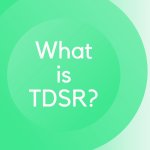How Much Can I Borrow for a Home Loan in Singapore?
Finding a permanent spot of residence can be quite tricky. Once you got the location sorted out, you need to deal with financial matters, which is also gut-wrenching to have if you aren’t prepared.
Luckily, different types of loans are available for people of different walks of life. Either it’s a personal, business, or home loan – you can be ensured that your goals will be achieved in the long run.
By now though, if you’re reading this, it should be basic information for a Singaporean like you. The real question is how much can you actually borrow for a home loan in Singapore. Let us take a closer look into the intricacies of home loans in the next portions of this blog.
Take note that housing loans and home loans are synonymous with each other in the next portions of this article. I’ll also keep it as simple as possible so that you won’t be confused with things that surround the home loan industry. Let’s get it started.
The Maximum Limit: LTV Ratios
For starters, we should know that the amount of a home loan can vary from person to person. It depends on their income, and it also depends on if it’s Housing and Development Board (HDB) Concessionary Loan or just a Private Bank Loan.
Let’s discuss LTV Ratios first. Loan-To-Value (LTV) Ratios are the maximum amounts of loan that you can possibly get. However, there’s another thing to consider. These are represented as percentages.
For HDB Concessionary Loans, you can loan up to 90% of the selling price or property valuation, whichever is lower.
For private bank loans, you can loan up to 75% of the selling price or property valuation, whichever is lower.
People oftentimes sell higher than usual. Several private properties have their own “values” or valuation, and as you may have guessed, people will sell their properties at a higher price than the valuation. The additional charge of the seller is called the Cash-Over-Value (COV).
The HDB usually does the property’s valuation, and to check the property’s value, you can use the Urban Redevelopment Authority (URA) Private Residential Property Transactions and HDB Resale Flat Prices e-services.
In simple terms, it means that you’ll most likely loan according to a property’s valuation rather than the selling price.
With that said, let us take a look at the limits imposed on the monthly income of a person.
MAS Income Regulations

The Monetary Authority of Singapore (MAS) has rules on how much money you can borrow. It was mentioned that the maximum loan you can get depends on your income, age, loan duration, property type, and existing housing loans.
With that said, the maximum amount of money that you can only borrow is more likely impeded by the regulations of the MAS. Thus, a person’s monthly income is probably the key factor in home loans, unless that particular person’s income is on the higher end of things.
How much can I borrow for a Home Loan then?
In an extremely simple sense, it varies from person to person. We only have a definite answer with the LTV of private banks and HDB Concessionary Loans, but MAS actually has their own computation of LTV limits as well.
With that, it doesn’t actually hurt to find a consultant to do the job of knowing your loan limits. It can get confusing, and you’ll need professional help to learn everything that you need.
Luckily, our experts at Home Loan Whiz are some of the most reputable consultants that cater to home loans.




[…] United Overseas Bank, or UOB in short, is quite the powerhouse in the Singaporean financial market. It is a bank that has stood […]